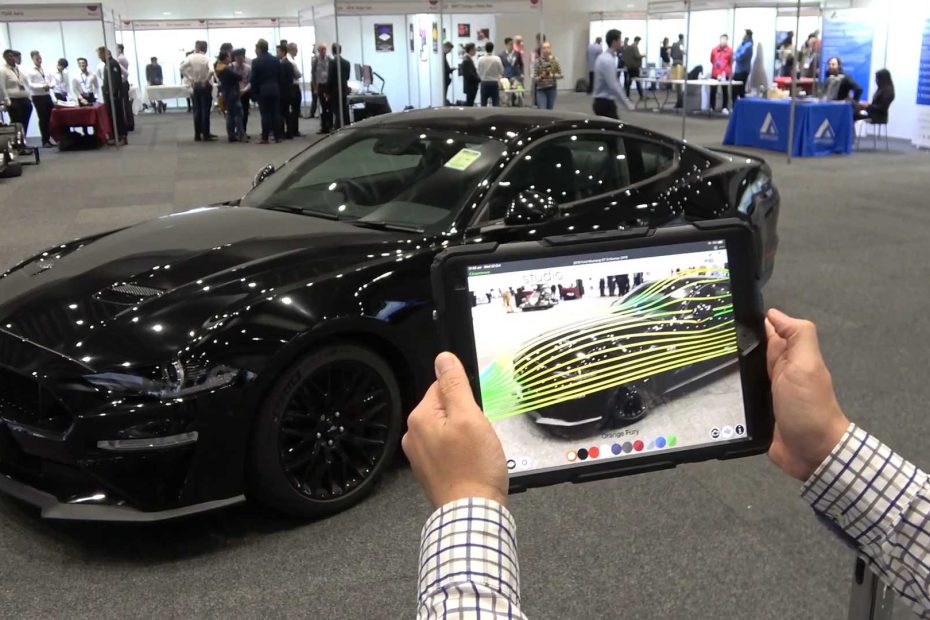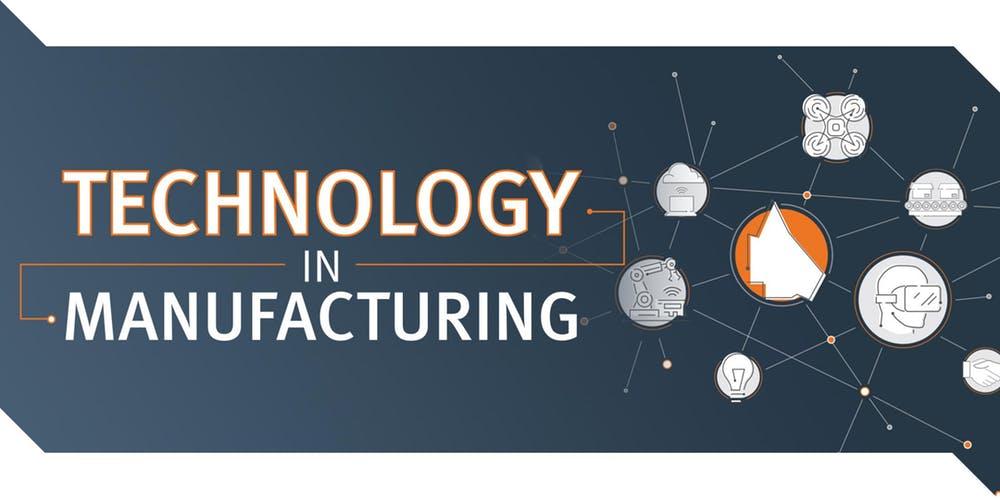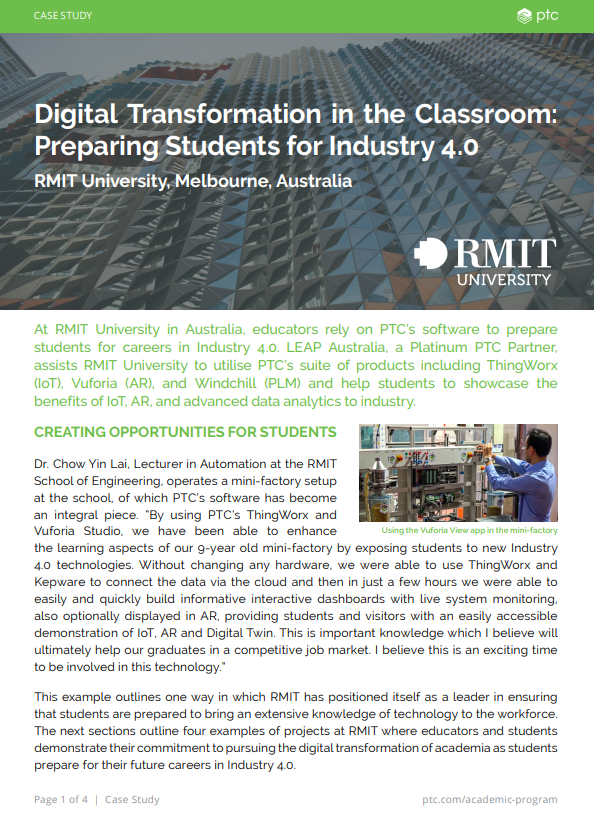Over the last month the team at LEAP has really clocked up the frequent flyer miles, travelling to a range of events across Australia and New Zealand, including a Hackathon in Auckland, government facilitated technology seminars across Queensland, an IoT conference/exhibition in Sydney and student showcase in Melbourne.
September saw the LEAP PTC team head to New Zealand to help mentor students during the 2019 IoT/AR Hackathon, held in conjunction with the University of Auckland & Callaghan Innovation. Judges included experts from both the university, Callaghan Innovation as well as a representative from the New Zealand IoT Alliance. During the Hackathon, University of Auckland students across 6 teams tackled real world problems supplied by a diverse range of local companies with the goal of harnessing the power of IoT and AR to provide innovative solutions with solid business case that could make a real-world impact in NZ.
The Hackathon format provides a unique experience for participants; students from multi-disciplinary backgrounds work together and with industry to understand the problems faced by businesses, then apply ThingWorx IoT and Vuforia Studio AR software to rapdily develop a solution.
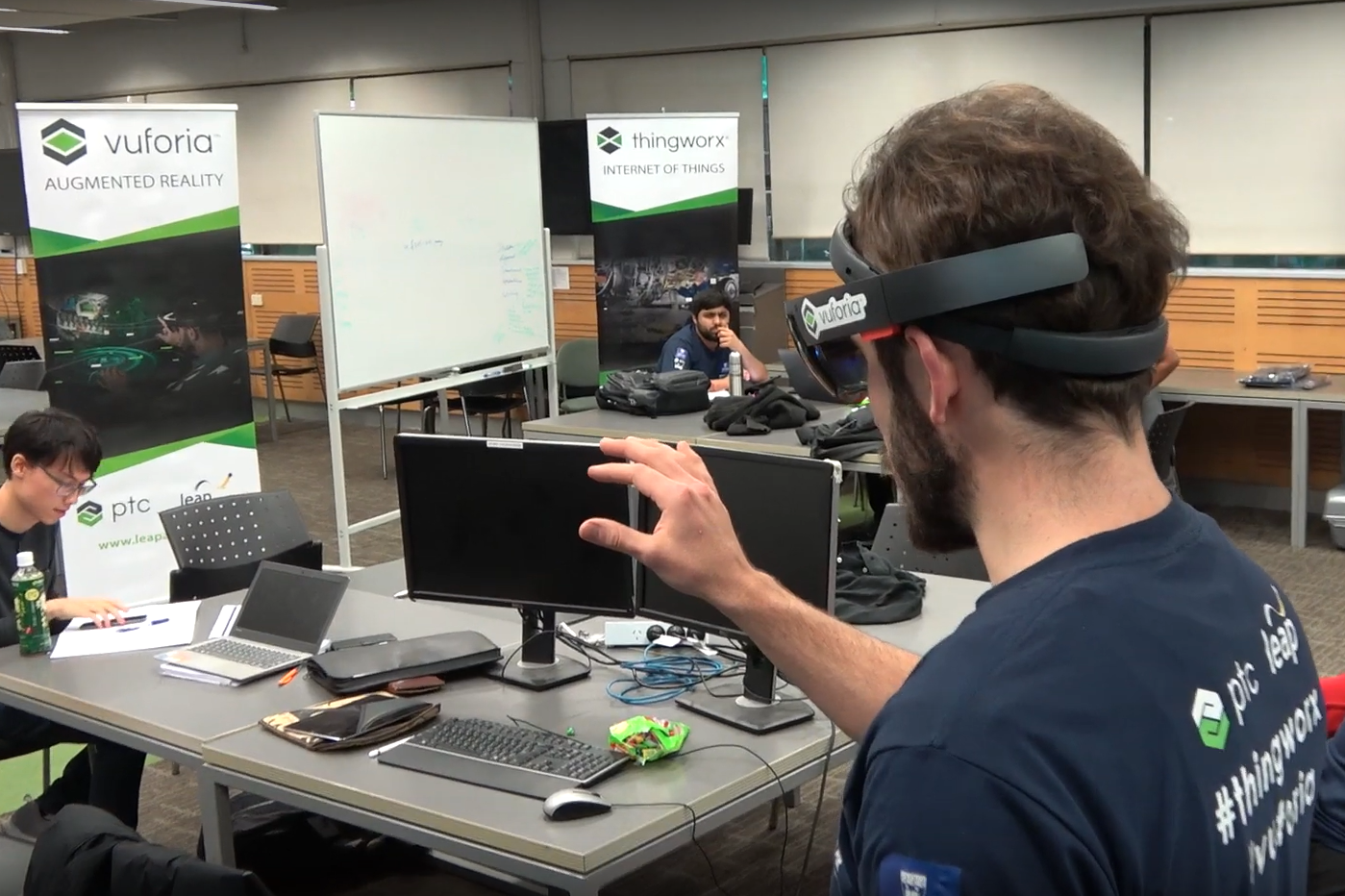
The condensed nature of the program (competing over just 2 days) means that teams must be agile, conceptualising a solution quickly then implementing it just as fast. In turn, businesses gain valuable insight into how IoT and AR tools can be adopted to solve existing problems, quickly and without protracted or expensive software deployment.
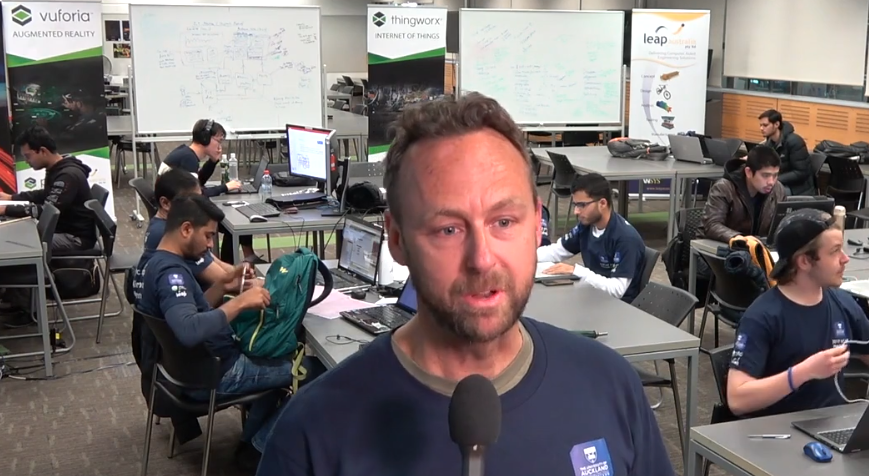
Speaking during the Hackathon, industry partners Callaghan Innovation expressed the importance of such events in order to both raise awareness of the current technology that is now available to help address problems that local companies are facing, but also to carefully consider the business case and potential ROI of the solutions. ‘We see industry 4.0 as really important for New Zealand businesses as it really sets them up for increased productivity and opens up new business models as well’ explains Phil Anderson, Callaghan Innovation. ’One of the challenges for business is not getting too caught up with the shiny lights of technology because at the end of the day there has to be a business case, so I think these hackathons are really good to get the students thinking about – what is that business case? What will that return of investment be for the business? Not just how the technology will help solve the problem.’
LEAP has also recently joined the New Zealand IoT Alliance. The IoT Alliance aims to actively contribute to the prosperity of New Zealand through accelerating the uptake of IoT and LEAP is excited to be joining the long list of innovative member companies and working together with them to achieve this goal. As John McDermott of the IoT Alliance describes, ‘We aim to bridge that gap between what the technology can do and what people need it to do… closing the gap on the business case and business model and showing people that the technology is lower risk than what they might perceive it to be. It’s faster to deploy than they might realise and to actually encourage New Zealand industry to realise what IoT can do in connecting the real world to solve problems for people.’
For companies starting out on their journey of digital transformation the IoT Alliance provides valuable insight into all aspects of the process from understanding connectivity, devices and other enabling infrastructure and issues around cyber security to learning how to assess the business value of IoT and how to deliver a successful pilot project. The wealth and diversity of knowledge shared by the council and member companies can dramatically accelerate the digital transformation for any business.
On the 15-16th of October LEAP participated in the IoT Impact conference held in Sydney where several great presentations from ‘mature’ IoT implementations were given.
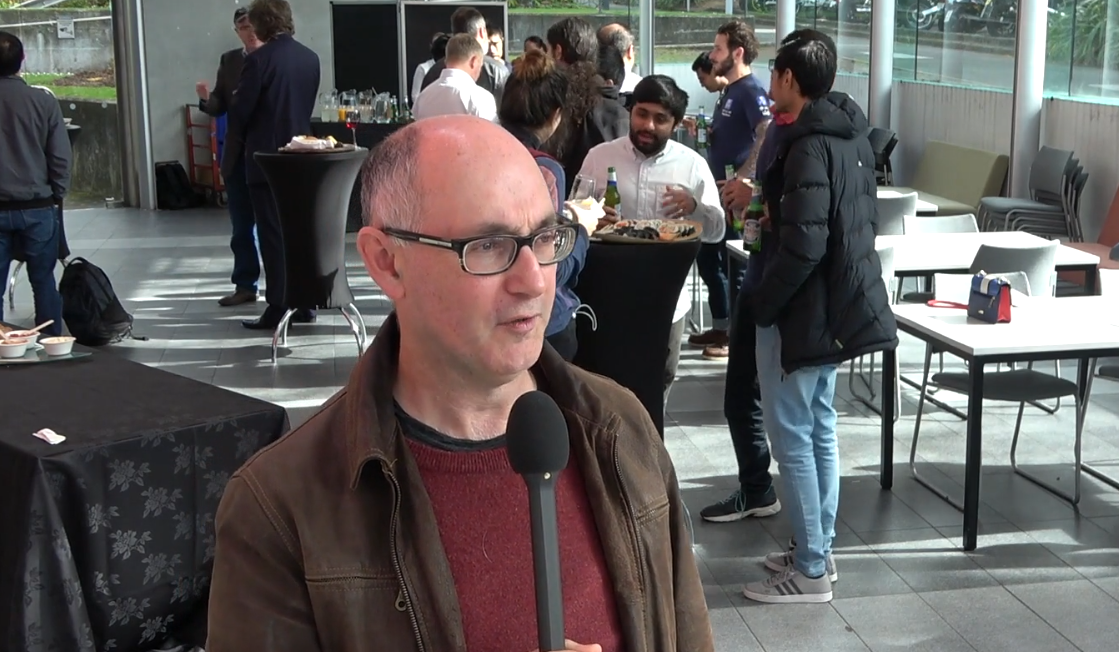
The event hosted over 60 speakers across different streams such as smart cities, food & agribusiness, water and energy management, transport and manufacturing. The conference provided the opportunity for local manufacturers to learn from a variety of successful pilot projects and implementations, and clearly demonstrated the rapidly growing maturity of the IoT market in Australia.
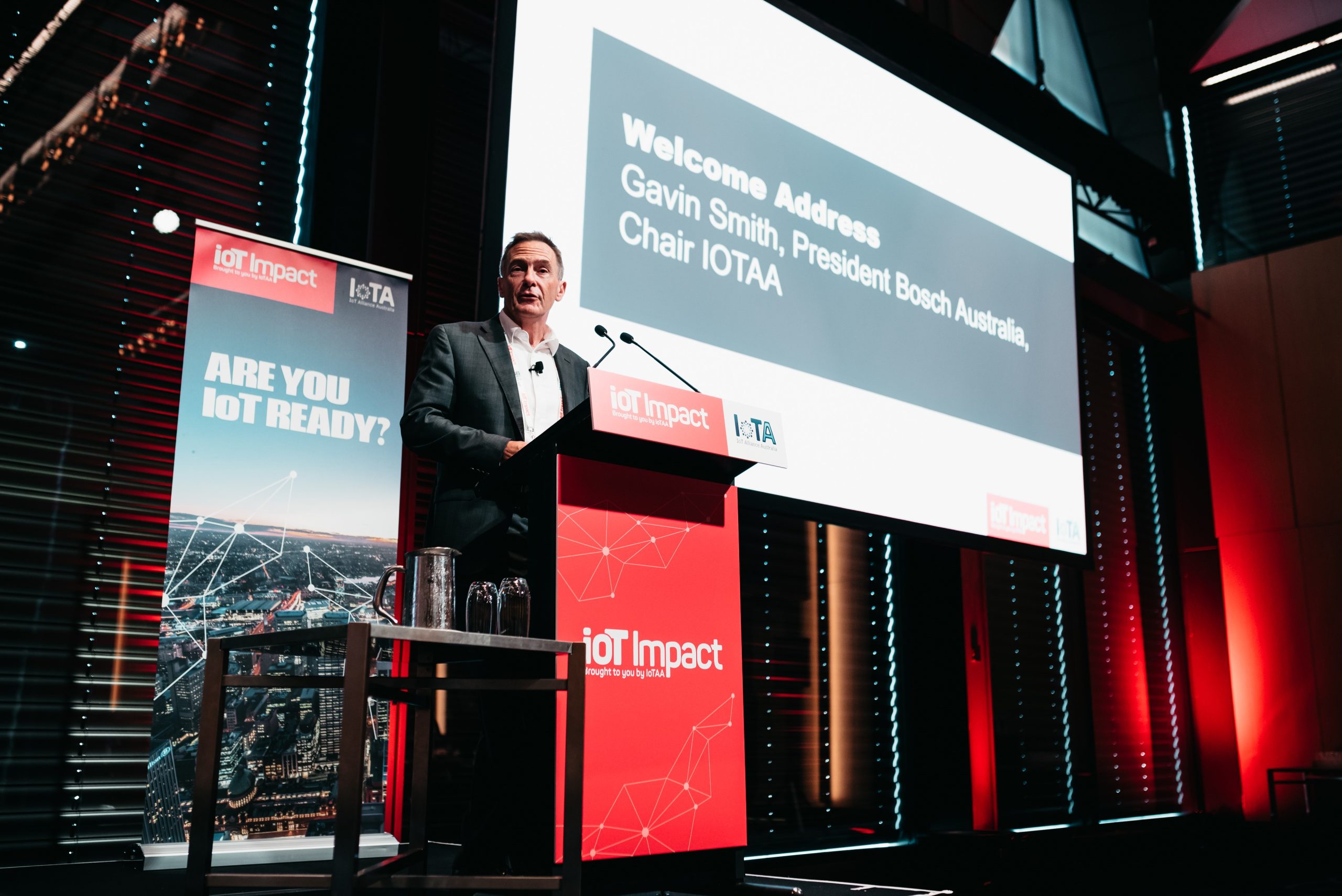
Also evident at IoT Impact was the explosion in hardware providers aiming at the IoT market. With a broad range of connectivity options now available, companies are able to carefully consider their own unique requirements before implementing the right connectivity solution, including consideration of:
- physical location (remoteness)
- amount of data needing to be communicated, and the frequency required,
- whether connectivity must be “always on” or can be configured to burst when network is available,
- the storage/compute power required at the edge
- real-time monitoring at the edge for large amounts of data
All of these factors must be considered before deciding on the right framework for a successful IoT implementation – but the good news is the range of options is now broad and provides a fit for all combinations of the above. Hearing from companies already experienced in this process was enlightening and it is encouraging to see how the market will only continue to mature as more and more businesses embark on their own IoT journey. IoT Impact was presented by the IoT Alliance Australia whose 500 participating organisations and 1000 individual participants are working to accelerate the adoption of IoT across the Australian economy and society.
Moving further north to Queensland, LEAP has been proud to collaborate with the Queensland Department of State Development, Infrastructure and Planning to convene a series of five “Technology in Manufacturing” seminars across QLD, including regional centres such as Townsville and Mackay.
During these seminars, LEAP has facilitated sessions on IoT and AR/VR – where in particular we have seen lots of interest in the use of AR for training and maintenance/servicing purposes, as well as the streaming of live IoT data to key personnel. Attendees at the 3 events held so far (Cairns, Brisbane and Logan) have demonstrated quite a broad spectrum of existing knowledge on these topics – ranging from “What is IoT?” all the way through to “What can we do with the data?” so this initiative is clearly a valuable one and we look forward our continued involvement in the final 2 events – if you’re in Townsville or Mackay, you can register here.
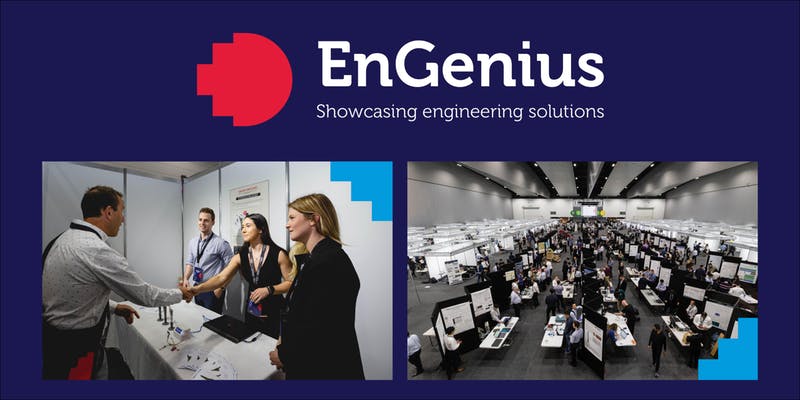
Finally to Melbourne where today we are joined by over 1,000 final year RMIT engineering students showcasing their projects and products at EnGenius. RMIT academics and representatives from industry representatives (including 3 judges participating from LEAP) are judging the young engineers’ exhibits with a focus on creating design solutions for real-life challenges. Industry 4.0 has again been a key event theme and highlighted the impact of digital disruption from emerging technologies such as IoT and AR on engineering.
Watch here as Paul O’Shaughnessy, PTC Business Manager at LEAP Australia, talks about the highlights for LEAP in our involvement at RMIT EnGenius 2019:
At LEAP we are pleased that RMIT students showcasing their projects at EnGenius have in many cases embraced these disruptive trends with a variety of innovative and cutting-edge projects. Our goal in being closely involved with RMIT EnGenius is to help raise awareness of what is possible with these new technologies and to encourage more engineering graduates to develop these much-needed Industry 4.0 skills which are now demanded by our industry customers across Australia and New Zealand. Recently, RMIT University published a case study in conjunction with PTC – showcasing the many ways that Digital Transformation has been embraced across the university to help prepare students for Industry 4.0 – you can download and read the full case study here:

